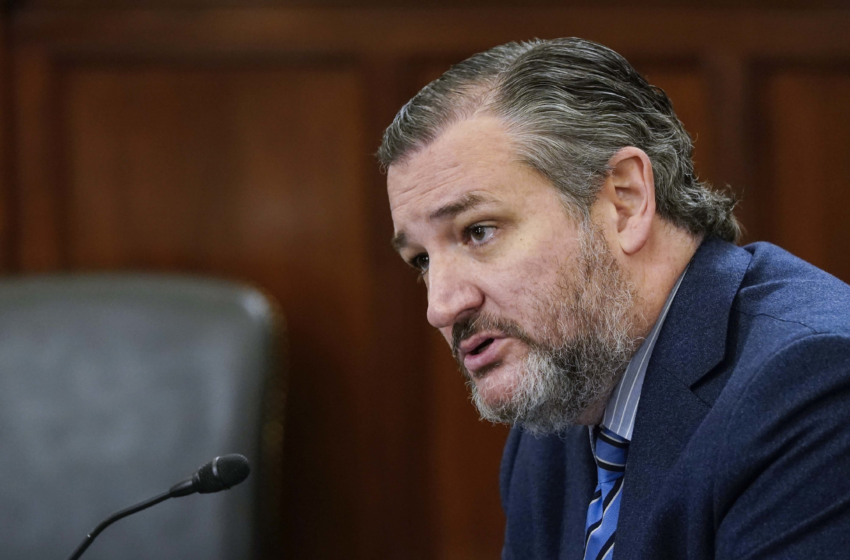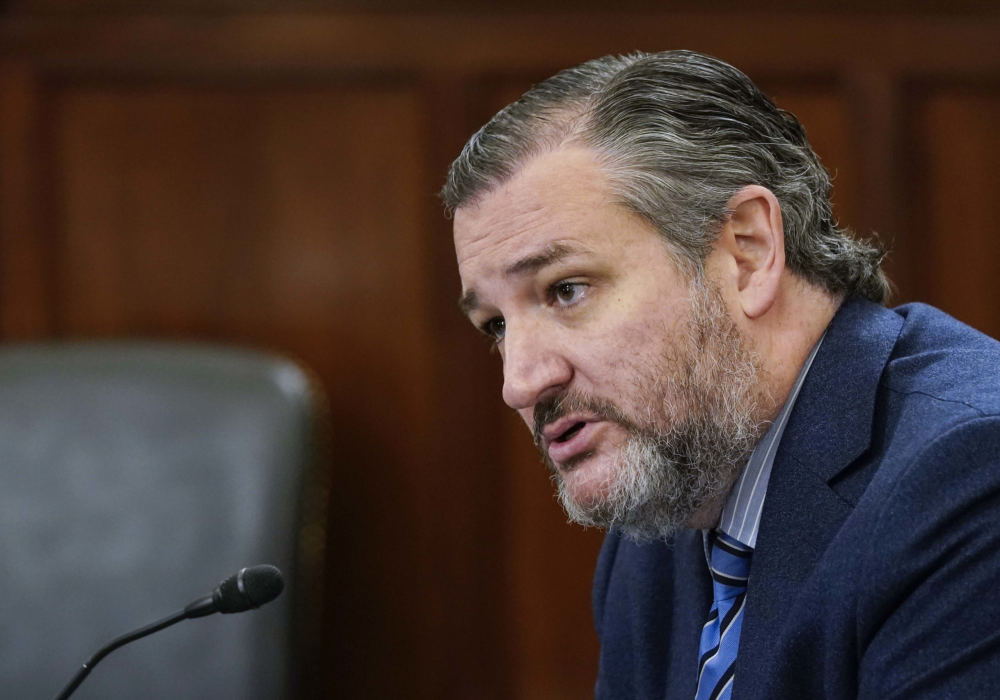“There is no need to keep what remains of BCRA on the books. This Court should wipe the slate clean,” Don McGahn, McConnell’s counsel, wrote in a friend of the court brief filed late last year. McConnell brought one of the earliest challenges to the law, with the Supreme Court ultimately largely upholding key provisions of it in 2003.
But the justices almost entirely avoided a discussion about the broader constitutionality of BCRA during Wednesday’s arguments on Cruz’s case. Since McConnell’s 2003 legal defeat, the law was significantly weakened by subsequent Supreme Court rulings, most notably the 2010 Citizens United decision that cleared the way for super PACs in American politics.
The only hint of broader consequences from the case came from Justice Clarence Thomas, who at one point asked if the impact of news outlets crusading for or against candidates might be at least as significant as modest donations to campaigns. But no other justices pursued that line of questioning.
During the 90 minutes of arguments on Cruz’s suit Wednesday, most of the court’s conservatives sounded skeptical about the line-drawing in BCRA’s debt-repayment cap, as well as a related Federal Election Commission regulation.
The law bars candidates from using more than $250,000 in post-election contributions to pay off loans the candidates made to their own campaigns, while an additional regulation from the Federal Election Commission effectively tightens the window that candidates have to repay any amount exceeding that limit with pre-election funds.
Chief Justice John Roberts said he was puzzled at how judges were supposed to weigh the impact of such limits on First Amendment speech associated with campaigns against the anti-corruption interests that have traditionally been relied on to justify campaign finance laws.
“How are you supposed to weigh imponderables?” Roberts asked Deputy Solicitor General Malcolm Stewart. “Exactly how is that analysis supposed to proceed in concrete terms?”
Stewart said the debt-repayment provisions were akin to laws and regulations strictly limiting gifts to federal officials.
Justice Elena Kagan appeared to agree, saying that such repayments effectively amount to cash that flows to a candidate.
Such gifts go “into a candidate’s own personal pocket,” she said. “That, to me, screams quid pro quo corruption interest. “
Justice Stephen Breyer concurred. “It isn’t really a contribution. It’s a payback,” he said.
But some of the conservative justices signaled that they would move to strike down the limit.
“It would seem to me that the law puts the candidate to a choice of spending your own money for a loan above $250,000 … and forgoing any repayment for an amount above $250,000,” Justice Neil Gorsuch said to Stewart. “The choice is to spend that without any possibility of getting it back or not spending it at all, and that seems to be, therefore, a chill on your ability to loan your campaign money.”
Cruz intentionally challenged the loan provision of the law. Right before the 2018 general election, he loaned his campaign $260,000 — just over the repayment threshold.
A three-judge panel initially sided with Cruz last summer, ruling that the provision was unconstitutional.
Cruz’s attorney, Chuck Cooper, stressed that contributions that effectively reimburse the loans are still subject to the $2,900 donation limit for a primary or general election campaign. That means candidates can tap about 86 people for max-out donations before the FEC rules kick in, despite the corruption concerns.
Cooper said that makes it likely that Congress added the provision to limit self-financed challengers who could jeopardize the seats of incumbents
“Congress effectively gives a corruption hall pass to the first 86 donors who max out after an election but abruptly closes the corruption window on donor No. 87,” Cooper said. “It makes no sense.”
Roberts Wednesday hinted at a possible off-ramp for the case, suggesting that Cruz’s challenge might have proceeded improperly by being directed to a three-judge panel used to consider constitutional challenges to BCRA.
The chief justice said that if the FEC regulation was at the heart of the case then the suit should have been heard by a single judge and then proceeded to a court of appeals, rather than straight to the Supreme Court.
Roberts said the constitutional frailty of the FEC regulation was evident. “It jumps off the page,” he said. “Why would you let an agency make this up on their own?”
Kagan also raised similar questions, but it was unclear how many other justices shared that concern, which might lead to the high court dodging the central constitutional issues — at least for now.
For his part, Justice Samuel Alito seemed to consider the questions Roberts and Kagan raised irrelevant to the dispute before the court.
“I don’t think either of you should be pressed to express a view on this issue, which is not the issue in the case,” Alito said to the attorneys for both sides.
It’s unusual for a justice to suggest directly that his or her colleagues’ questions aren’t relevant to the case, but Roberts seemed eager to defuse the notion of any affront at Alito’s critique.
“I would just say it’s an interesting issue,” the chief justice said, prompting laughter from several members of the court.











